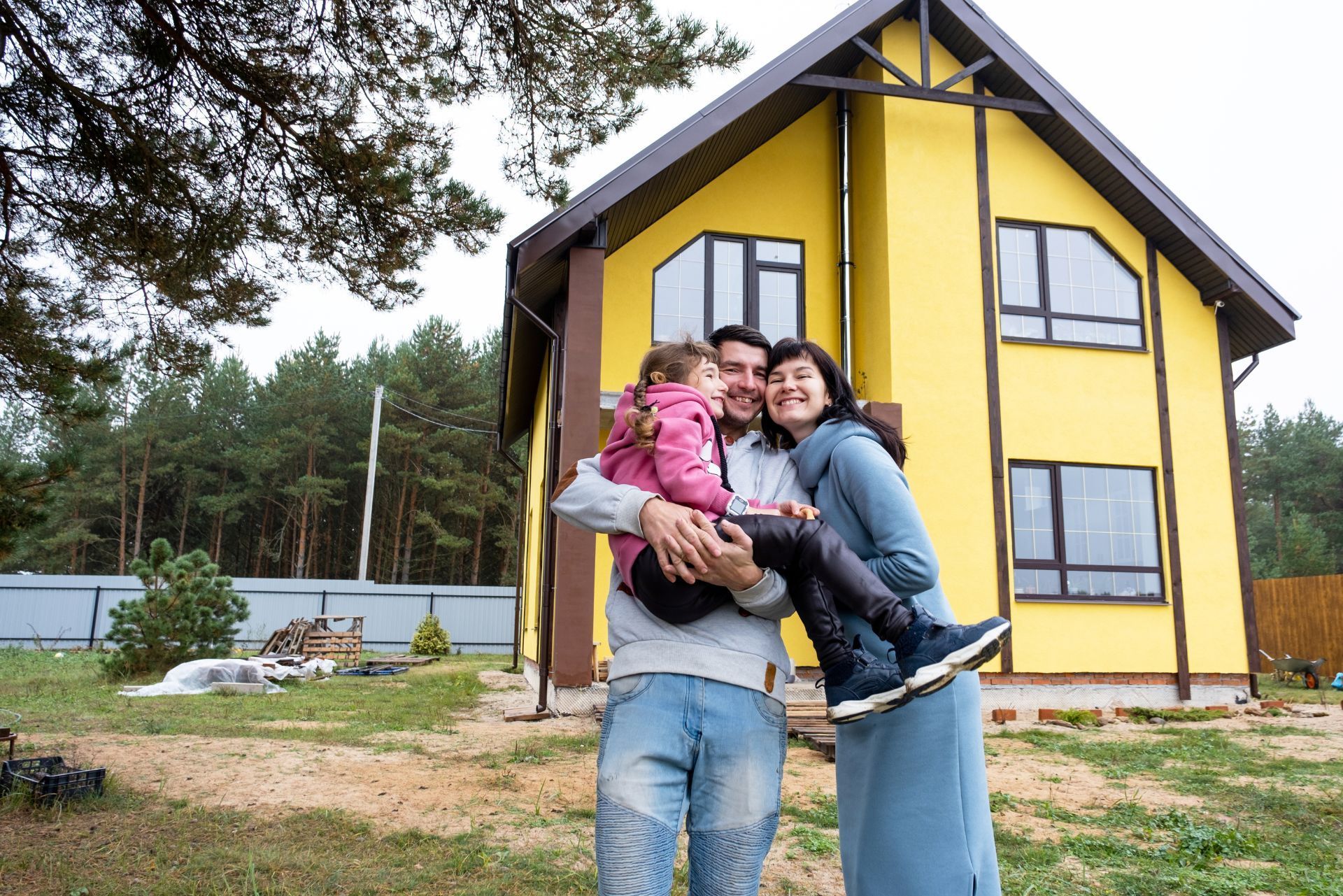Top 3 Recommended Policies

By: David Graves
Licensed Personal Insurance Specialist
425-320-4280
Purchasing a home is one of the most significant investments anyone can make, and protecting that investment with the right home insurance is essential. For residents of Kirkland, Washington, understanding the nuances of home insurance policies, local risks, and coverage options can make all the difference when it comes to peace of mind and financial security.
This comprehensive guide will walk you through everything you need to know about home insurance in Kirkland, WA—from the basics of coverage and local considerations to tips for choosing the best policy for your needs.
Understanding Home Insurance: The Basics
Home insurance, also known as homeowners insurance, is a type of property insurance that covers losses and damages to an individual's residence, along with furnishings and other assets in the home. It also provides liability coverage against accidents in the home or on the property.
In Kirkland, as in most parts of the United States, home insurance policies typically include several key components:
Dwelling Coverage
This covers the physical structure of your home, including walls, roof, floors, and built-in appliances. If your home is damaged by a covered peril such as fire, windstorm, or vandalism, dwelling coverage helps pay for repairs or rebuilding. It's essential to ensure that your dwelling coverage is sufficient to rebuild your home at current market rates, as construction costs can fluctuate significantly over time. An accurate assessment of your home's value can prevent potential financial strain in the event of a disaster.
Personal Property Coverage
This protects your personal belongings inside the home, such as furniture, electronics, clothing, and valuables. Most policies cover these items up to a certain limit, though high-value items like jewelry may require additional riders. It's advisable to conduct a home inventory, documenting your possessions with photographs and receipts, to ensure that you have adequate coverage. This inventory can also expedite the claims process should you need to file one, providing clear evidence of your losses.
Liability Protection
Liability coverage protects you if someone is injured on your property and decides to sue. It can cover legal fees, medical bills, and settlements up to your policy limits. Additionally, this coverage can extend beyond your property, offering protection for incidents that occur away from home, such as if your dog bites someone during a walk. Understanding the limits of your liability coverage is crucial, as it can vary widely between policies, and you may want to consider an umbrella policy for added protection.
Additional Living Expenses (ALE)
If your home becomes uninhabitable due to a covered loss, ALE helps cover temporary living costs such as hotel stays, meals, and other expenses while your home is being repaired. This aspect of your policy can be particularly beneficial during extensive repairs, as it alleviates the financial burden of finding alternative accommodations. It's important to review the specific limits and duration of ALE coverage in your policy, as these can vary significantly and may impact your overall recovery experience.
Moreover, understanding the nuances of your home insurance policy can empower you to make informed decisions about your coverage. Factors such as deductibles, exclusions, and endorsements can all influence your policy's effectiveness. For instance, some policies may exclude certain natural disasters like floods or earthquakes, which could necessitate separate coverage. Engaging with a knowledgeable insurance agent can help clarify these details, ensuring that you have a comprehensive understanding of your policy and are adequately protected against potential risks.
Why Home Insurance is Crucial in Kirkland, WA
Kirkland is a vibrant city located on the eastern shore of Lake Washington, known for its beautiful neighborhoods, waterfront parks, and proximity to Seattle. However, like any location, it comes with specific risks that make home insurance especially important.
Weather and Natural Risks
While Kirkland does not frequently experience extreme weather, it is subject to the Pacific Northwest’s rainy climate, which can lead to water damage and mold issues if not properly managed. Additionally, the region is at risk for earthquakes due to its proximity to the Cascadia Subduction Zone. Standard home insurance policies typically do not cover earthquake damage, so residents may want to consider purchasing additional earthquake insurance. The potential for seismic activity underscores the need for homeowners to be proactive in assessing their insurance needs, as the costs associated with earthquake repairs can be significant and often exceed standard coverage limits.
Flood Risk and Coverage
Though Kirkland is near Lake Washington, most residential areas are not in high-risk flood zones. However, localized flooding can occur during heavy rainstorms. Standard home insurance policies do not cover flood damage, so if your property is at risk, purchasing separate flood insurance through the National Flood Insurance Program (NFIP) or private insurers is advisable. It’s essential for homeowners to review their property’s elevation and proximity to water sources, as even minor flooding can lead to costly repairs and disruptions. Furthermore, understanding the claims process for flood insurance can help homeowners navigate potential challenges more effectively, ensuring they are prepared in the event of an emergency.
Fire Hazards
While Kirkland is largely urban and suburban, the surrounding areas have experienced wildfires in recent years. Smoke damage and fire risk are factors to consider, especially for homes near wooded areas or open spaces. Home insurance policies typically cover fire damage, but it’s important to verify coverage limits and exclusions. Additionally, homeowners should take proactive measures to mitigate fire risks, such as creating defensible space around their properties and maintaining clear access for emergency services. Investing in fire-resistant materials and regularly inspecting smoke detectors can further enhance safety and potentially lower insurance premiums, making it a win-win for both homeowners and insurers.
Crime and Liability Risks
In addition to natural disasters, Kirkland residents should also be aware of the potential for crime in their neighborhoods. While Kirkland is generally considered safe, property crimes such as burglary and vandalism can occur, making it essential for homeowners to consider comprehensive coverage that includes
personal property protection. Additionally, liability coverage is crucial for safeguarding against accidents that may happen on your property, such as a guest slipping and falling. This type of coverage can protect homeowners from significant financial loss and legal fees, providing peace of mind in an unpredictable world.

Factors Influencing Home Insurance Rates in Kirkland
Several factors impact the cost of home insurance premiums in Kirkland. Understanding these can help homeowners make informed decisions and potentially reduce their insurance costs.
Home Value and Replacement Cost
The size, age, and construction materials of your home affect the replacement cost, which is a primary factor in determining your premium. A newer home with modern materials and safety features may qualify for lower rates. Additionally, the local real estate market can play a significant role in determining home value; fluctuations in property values can lead to adjustments in insurance premiums. Homeowners should regularly assess their coverage to ensure it reflects any improvements or renovations that may have increased the home's value.
Location and Neighborhood
Insurance companies assess the risk based on your home's location. Kirkland’s relatively low crime rates and proximity to emergency services generally contribute to favorable rates. However, homes closer to water or in areas with higher claims history might face higher premiums. The topography of the neighborhood can also influence rates; properties located in flood-prone areas or those susceptible to wildfires may incur additional costs. Homeowners should consider these geographical risks when selecting their insurance policy, as they can significantly impact both coverage needs and premium costs.
Claims History
Your personal claims history, as well as the claims history of your neighborhood, can influence your rates. Frequent claims or a history of large payouts in your area may increase premiums. It's important for homeowners to be proactive about maintaining their property to avoid claims that could lead to higher costs. Regular maintenance, such as roof inspections and plumbing checks, can help mitigate risks and potentially lower future premiums. Additionally, some insurers offer programs that reward homeowners for claim-free years, providing an incentive to maintain their homes diligently.
Deductibles and Coverage Limits
Choosing a higher deductible can lower your premium, but it means more out-of-pocket costs in the event of a claim. Similarly, higher coverage limits increase premiums but provide greater financial protection. Homeowners should carefully evaluate their financial situation and risk tolerance when selecting deductibles and coverage limits. It may be beneficial to consult with an insurance agent to find a balance that offers adequate protection without straining the budget. Furthermore, understanding the nuances of different policy types—such as actual cash value versus replacement cost coverage—can also aid in making more informed decisions about insurance needs.
Home Security and Safety Features
Installing smoke detectors, burglar alarms, and deadbolt locks can sometimes earn discounts on your premium. Some insurers also offer discounts for homes with sprinkler systems or smart home security devices. Beyond just the financial benefits, enhancing your home’s security can provide peace of mind for homeowners. Many modern security systems come equipped with monitoring services that can alert authorities in case of an emergency, potentially preventing significant damage. Additionally, some insurance companies may provide incentives for homeowners who participate in community safety programs or neighborhood watch initiatives, further encouraging a proactive approach to home safety.
Types of Home Insurance Policies Available in Kirkland
Homeowners in Kirkland can choose from several types of home insurance policies, each designed to meet different needs and property types.
HO-3: Special Form Policy
The HO-3 policy is the most common and comprehensive type of home insurance. It provides coverage for your home against all perils except those specifically excluded, such as earthquakes and floods. Personal property coverage is typically on a named-peril basis, meaning only listed risks are covered.
HO-5: Comprehensive Form Policy
HO-5 policies offer broader coverage for both the dwelling and personal property, often on an open-peril basis. This means your belongings are covered against all risks unless specifically excluded. HO-5 policies tend to be more expensive but provide enhanced protection.
HO-4: Renters Insurance
If you rent a home or apartment in Kirkland, an HO-4 policy covers your personal belongings and liability but does not cover the building itself. This is essential for renters who want to protect their possessions and liability.
HO-6: Condominium Insurance
For condo owners in Kirkland, an HO-6 policy covers personal property, liability, and often interior structural elements not covered by the condo association’s master policy.
Additional Coverage Options
Depending on your needs, you might consider endorsements or riders for:
- Earthquake Insurance: Essential in the Pacific Northwest due to seismic risks.
- Flood Insurance: Available through NFIP or private insurers for flood-prone areas.
- Water Backup Coverage: Protects against sewer or drain backups.
- Extended or Guaranteed Replacement Cost: Offers additional protection if rebuilding costs exceed policy limits.
How to Choose the Right Home Insurance Policy in Kirkland
Choosing the right home insurance policy requires balancing coverage, cost, and risk tolerance. Here are some steps to guide the decision-making process.
Assess Your Home’s Value and Risks
Start by determining the replacement cost of your home rather than its market value. Replacement cost reflects what it would take to rebuild your home from scratch, which is crucial for setting adequate dwelling coverage. Evaluate your personal belongings and consider any high-value items that may need extra coverage.
Evaluate Local Risks
Consider natural hazards common in Kirkland, such as earthquakes and floods, and whether additional coverage is necessary. Review your home’s location relative to flood zones and seismic risk maps.
Compare Multiple Quotes
Shopping around and obtaining quotes from several insurance providers can help you find competitive rates and better coverage options. Look for companies with strong financial ratings and good customer service reputations.
Understand Policy Details
Read the fine print to understand what is and isn’t covered, including exclusions, deductibles, and claim processes. Ask your agent about any endorsements or riders that might be beneficial.
Consider Bundling Policies
Many insurers offer discounts if you bundle home insurance with other policies such as auto or umbrella insurance. This can lead to significant savings.
Common Home Insurance Claims in Kirkland
Understanding the most frequent claims in Kirkland can help homeowners prepare and mitigate risks.
Water Damage and Mold
Due to the region’s wet climate, water damage from roof leaks, plumbing issues, or storm runoff is a common claim. Prompt maintenance and proper drainage systems can reduce this risk.
Theft and Vandalism
While Kirkland enjoys relatively low crime rates compared to national averages, theft and vandalism claims do occur. Security systems and neighborhood watch programs can help deter criminal activity.
Fire and Smoke Damage
Fires, whether from electrical faults or external wildfires, can cause significant damage. Smoke damage is also a frequent issue, even when fires occur miles away.
Wind and Storm Damage
Strong windstorms can damage roofs, siding, and trees on properties. Ensuring your home is well-maintained and trees are trimmed can minimize damage.

Tips for Filing a Home Insurance Claim in Kirkland
If you experience a loss, knowing how to efficiently file a claim can speed up the recovery process.
Document the Damage
Take clear photos and videos of all damage as soon as possible. Keep receipts for any emergency repairs or temporary living expenses.
Contact Your Insurance Company Promptly
Notify your insurer immediately to begin the claims process. Most companies have 24/7 claim reporting services.
Keep Records of Communication
Maintain detailed notes of phone calls, emails, and letters with your insurance adjuster and other parties involved.
Understand Your Policy Limits
Be aware of your coverage limits and deductibles so you know what expenses you will be responsible for.
Work with a Public Adjuster if Necessary
If you feel your claim is undervalued, consider hiring a public adjuster who advocates on your behalf to ensure a fair settlement.
Conclusion: Protecting Your Kirkland Home with Confidence
Home insurance is a vital component of responsible homeownership in Kirkland, WA. By understanding the types of coverage available, local risks, and factors influencing rates, homeowners can make informed decisions that protect their most valuable asset.
Regularly reviewing and updating your policy as your needs change will ensure you remain adequately covered. With the right preparation and knowledge, Kirkland residents can enjoy their homes with confidence, knowing they are protected against the unexpected.

